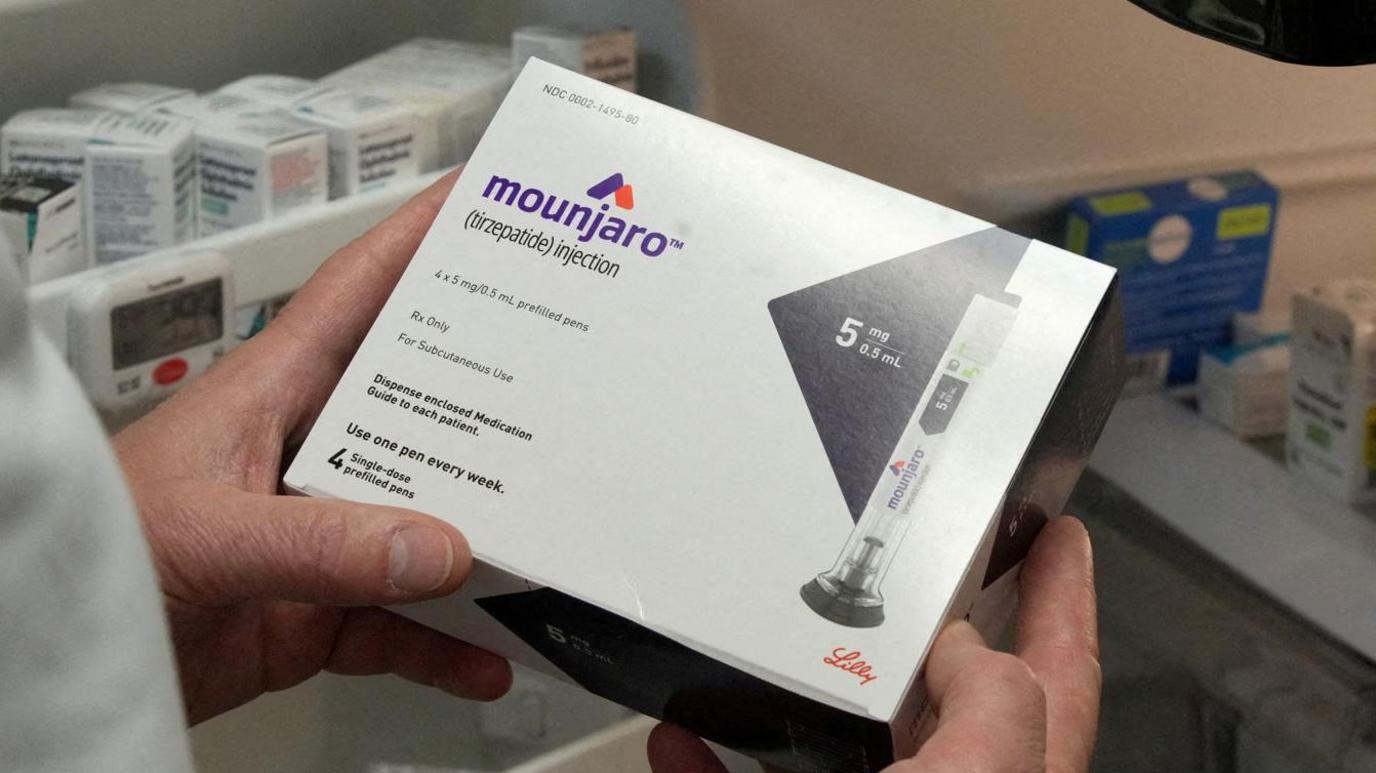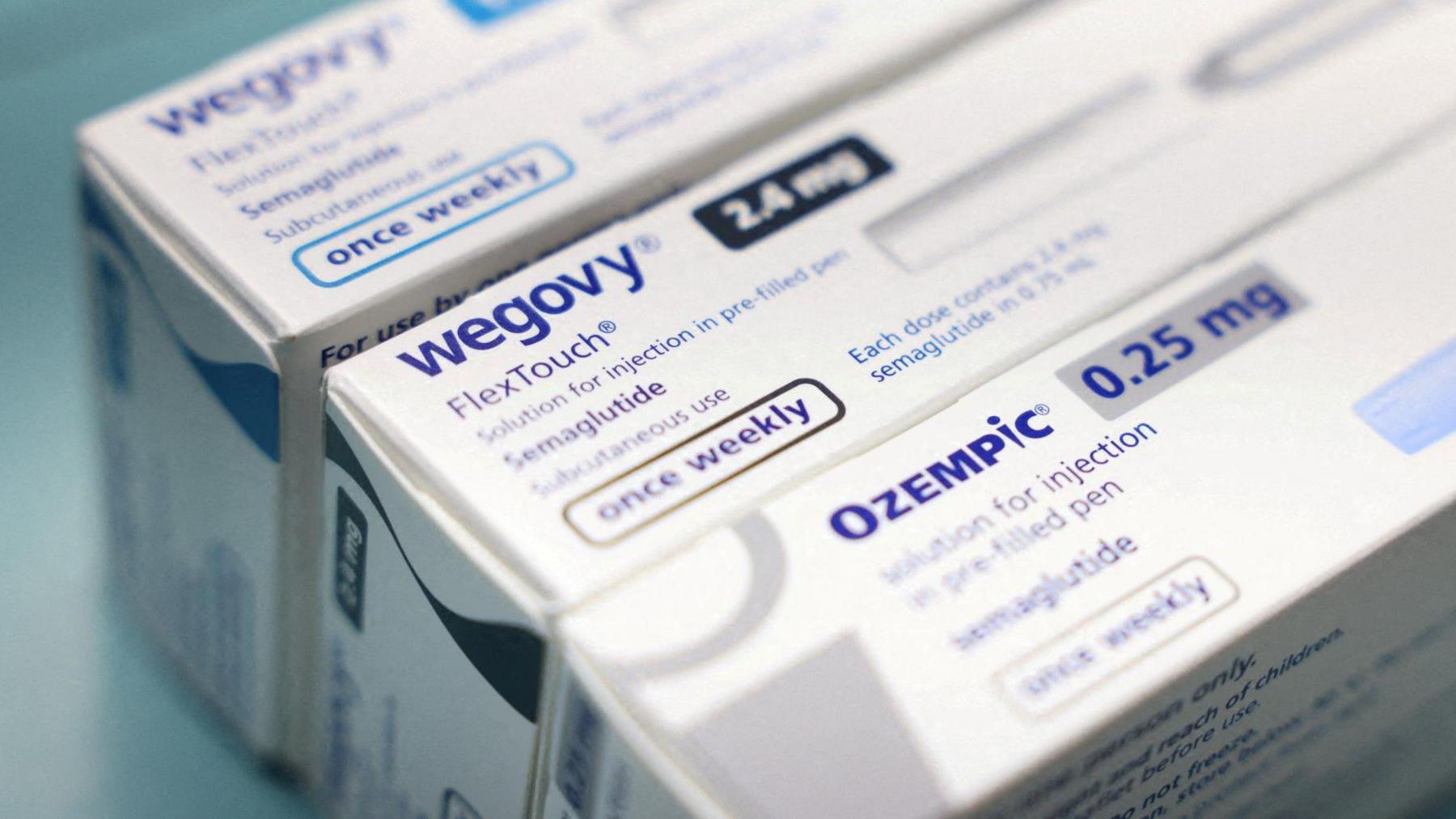How will weight loss drug trial for unemployed work?

The trial will use the injectable weight loss drug Tirzepatide
- Published
The first "real-world study" into the effectiveness of a weight loss drug is set to measure the impact on the job prospects of people living with obesity in Greater Manchester.
The five-year clinical trial was announced as part of a £279m plans by US pharmaceutical giant Eli Lilly to work with the UK government to address public health challenges like obesity.
The anti-obesity drug Tirzepatide, created by Eli Lilly and sold under the brand names Mounjaro and Zepbound, will be used in the study.
Illnesses relating to obesity cost the NHS £11bn a year, Health Secretary Wes Streeting said.
Unemployed could get weight loss jabs to return to work
- Published15 October 2024
Who will be involved in the trial?
The trial will be run by Health Innovation Manchester in partnership with Eli Lilly, along with the University of Manchester and local digital trials company NorthWest EHealth.
The group of Greater Manchester health organisations behind the study have not revealed exactly who will be given the drugs.
But up to 3,000 people in the city-region will eventually take part, those behind the project have said.
They say the study will examine the "real-world" effectiveness of tirzepatide on weight loss, and on preventing diabetes and obesity-related complications.
Researchers will also measure how the drug affects the employment status of a patient, as well as the number of sick days they take.
Why is it in Greater Manchester?
The trial will make use of the Greater Manchester Care Record - an innovative joined up database of patient information from health and social care providers in the region.
About 600,000 adults live with obesity in Greater Manchester, according to Mark Fisher, chief executive officer of the NHS Greater Manchester Integrated Care Board.
He said the condition "reduces their quality of life and puts additional pressure on the health and care system" and welcomed the study in his region.
Mayor of Greater Manchester, Andy Burnham, said: "Greater Manchester is world-renowned as a hub for innovation in health and life sciences."
Laura Rooney, director of strategy at Health Innovation Manchester, said the announcement of the trials was a “huge achievement”, and testament to strength of the health and care and academic sectors in the city.
The researchers said the plan was to release more details about the study at a later date.
What will the results be used for?
All the evidence gathered from the five-year trial will be used to demonstrate the long-term effect of weight loss medication.
Those behind the study say the results could help develop the care pathways set by health services for treating people with obesity.
Martin Rutter, who is a professor of Cardiometabolic Medicine at the University of Manchester said the trial would test the long-term effectiveness of the drug in the "real-world".
Prof Rutter, who is the lead investigator for the trial, said the the results would look into how the drugs works in "a primary care setting compared to usual care".
Primary care is the first point of contact for health care for most people and is mainly provided by GPs, but would also include community pharmacists, opticians and dentists.
Listen to the best of BBC Radio Manchester on Sounds and follow BBC Manchester on Facebook, external, X, external, and Instagram, external. You can also send story ideas to northwest.newsonline@bbc.co.uk, external and via Whatsapp to 0808 100 2230.
Related topics
- Published15 October 2024

- Published15 October 2024

- Published14 June 2024
